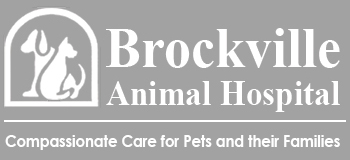Library
-
Training basic cues such as "sit", "stand", and "lie down" can set the foundation for all future training. These basic skills are useful behaviors that encourage good manners and tolerance of husbandry and veterinary care. Training your dog to understand cues improves communication with your puppy and improves the predictability of all interactions. Training methods based on positive reinforcement include luring, capturing and shaping.
-
Providing puppies with positive socialization experiences may prevent the development of future fears. Puppy socialization must be done gently to avoid accidentally causing fear. Puppies are most primed for socialization before the age of 14 weeks. By taking precautions, some careful socialization can and should be done even before puppies have completed their entire vaccination series.
-
Pyoderma is a bacterial skin infection that can affect all areas of the skin, including skin folds, often seen as red, pus-filled pustules. Treatment may require oral or topical medications and it is always a good idea to practice good hygiene. Pyoderma carries a good prognosis for recovery but recurring or chronic cases may require longer treatment and additional testing to determine an underlying cause.
-
Pyometra is a serious and life-threatening infection in the uterus, occurring in female dogs who have not been spayed. The condition must be treated quickly and aggressively. The preferred treatment is to surgically remove the uterus and ovaries by performing an ovariohysterectomy. There is a medical approach to treating pyometra, although the success rate is highly variable and not without considerable risk and potential long-term complications.
-
Pyothorax occurs when pus or inflammatory fluids collect in the space around the lungs causing fever, anorexia, lethargy, and difficulty breathing. It is diagnosed through history, physical exam, radiographs, and thoracocentesis. Treatment with oral antibiotics is essential and may involve repeated thoracocentesis or the placement of a chest drain.
-
Pyrantel pamoate is given by mouth and is used on and off label to treat intestinal parasites in many species. Give as directed. Side effects are uncommon but may include stomach upset, such as vomiting or diarrhea. Do not use in pets that are allergic to it. If a negative reaction occurs, call your veterinarian.
-
A herder through and through, the Pyr Shep is an energetic dog that needs a job. They become very attached to their owners, with a keen sense of their mood.
-
Pythiosis is a waterborne infection that can infect the GI tract or skin of dogs. It can cause extreme weight loss, vomiting, diarrhea or skin lesions such as ulcerating nodules and draining tracts. This disease is more common in southern regions. Treatment involves surgical removal of all affected material if possible, including limb amputation if indicated. Different antifungal therapies have shown some efficacy and need to be continued long-term. Prognosis for resolution of pythiosis is guarded to poor.
-
Radiation is a type of energy produced naturally by the sun, earth, and rocks and artificially by machines. Although several types of tumors can be treated with radiation therapy alone (e.g., nasal tumors, brain tumors, and certain types of lymphoma), radiation therapy is most commonly used to destroy or limit the growth of cancer cells left behind (i.e., microscopic disease) after a tumor has been surgically removed. Side effects depend on the type and location of the tumor and its surrounding tissues.
-
Ranitidine is given by mouth or injection and is used off-label to treat ulcers and erosions in the stomach and upper small intestine, reflux, or gastrointestinal motility issues. Give as directed. Side effects are uncommon but may include stomach upset. Do not use in pets with a history of allergies to this class of drugs. If a negative reaction occurs, call your veterinarian.

